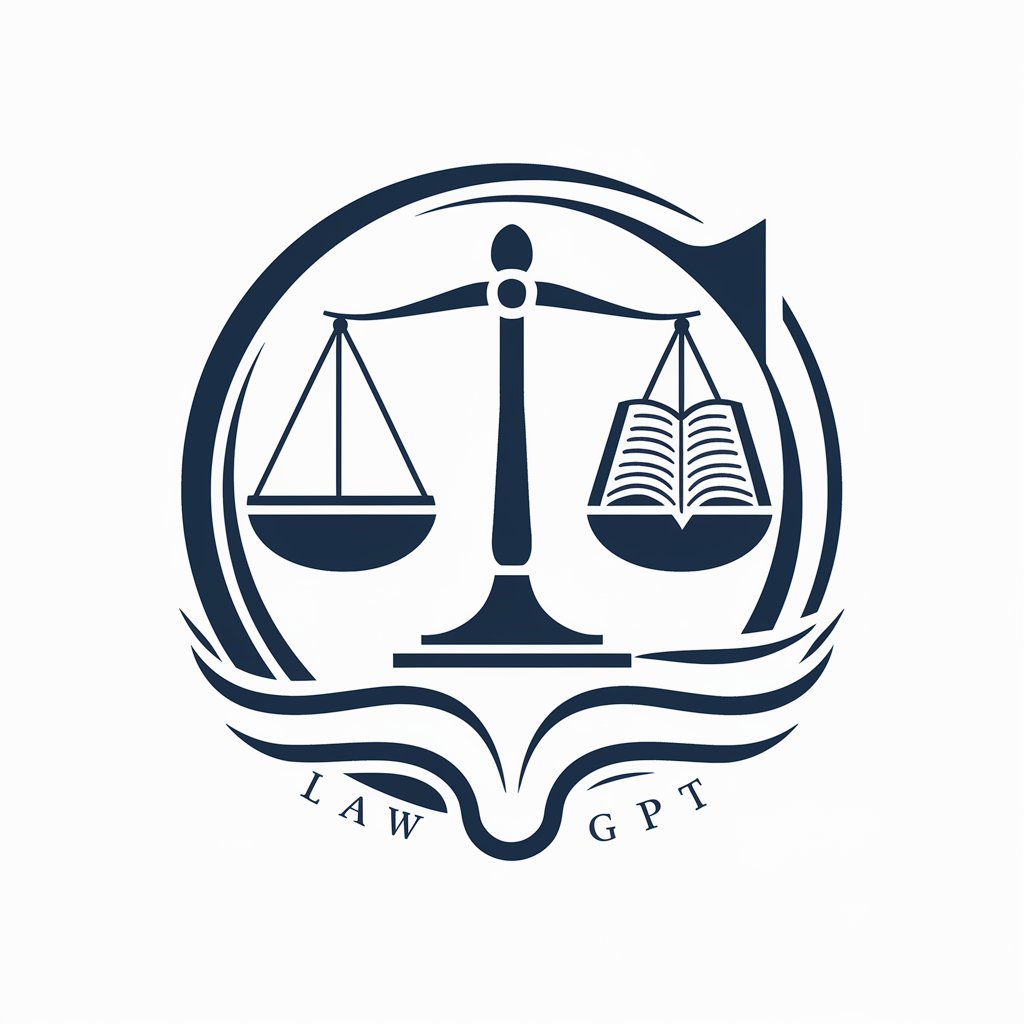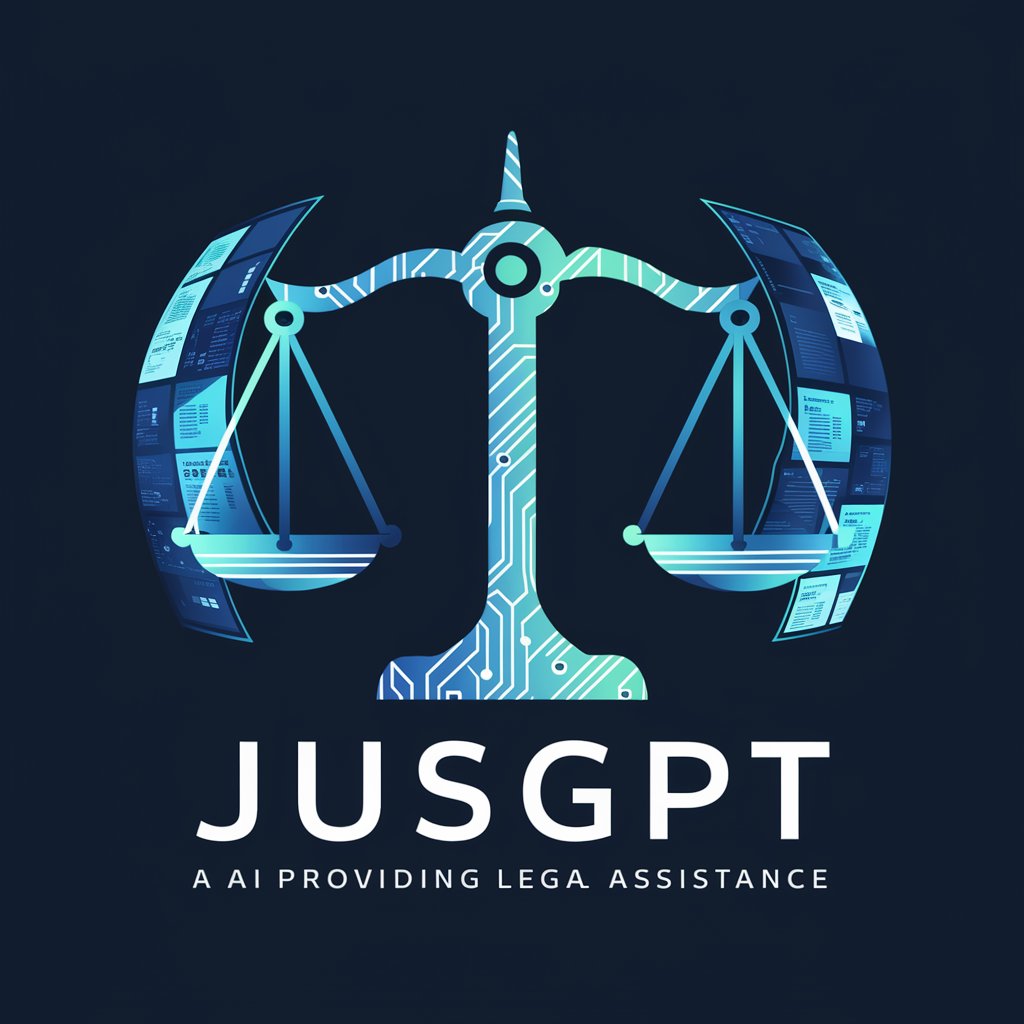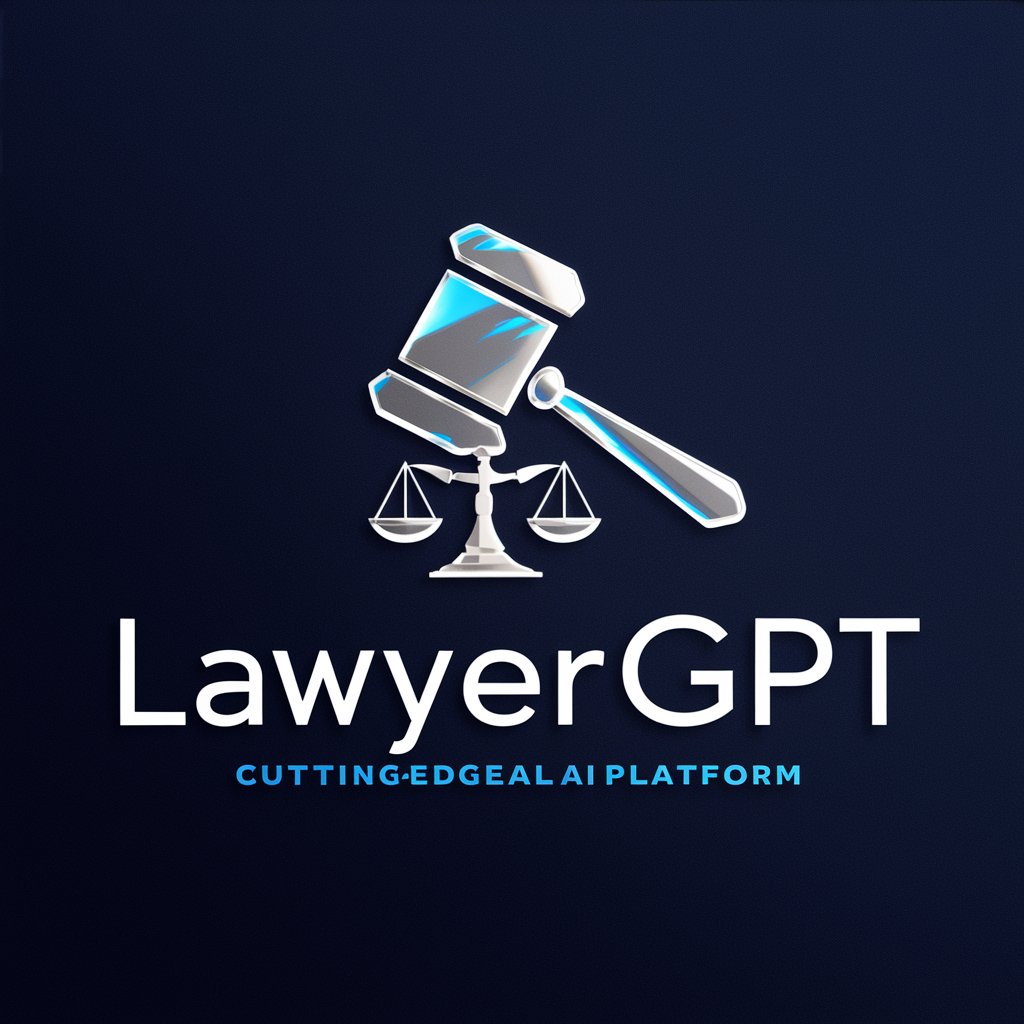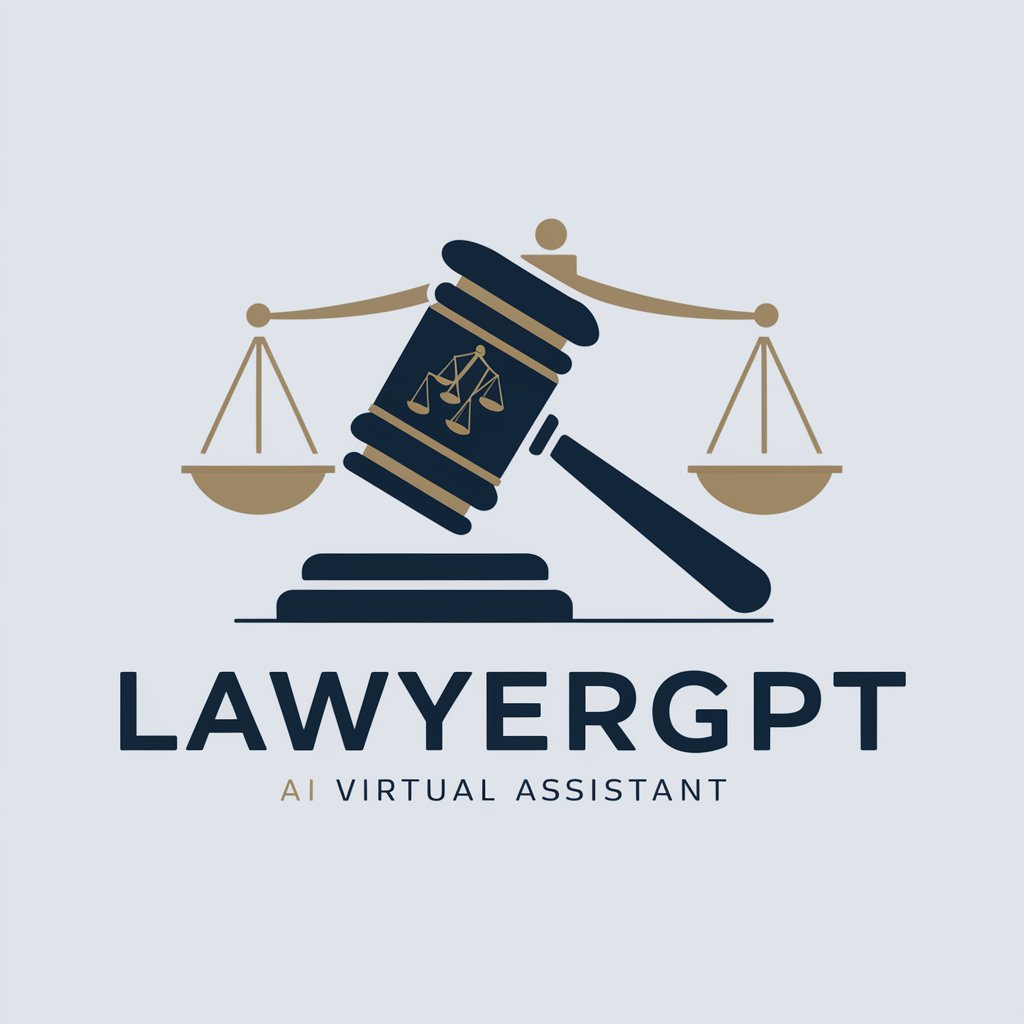
Lawyer GPT - Legal Guidance & Information
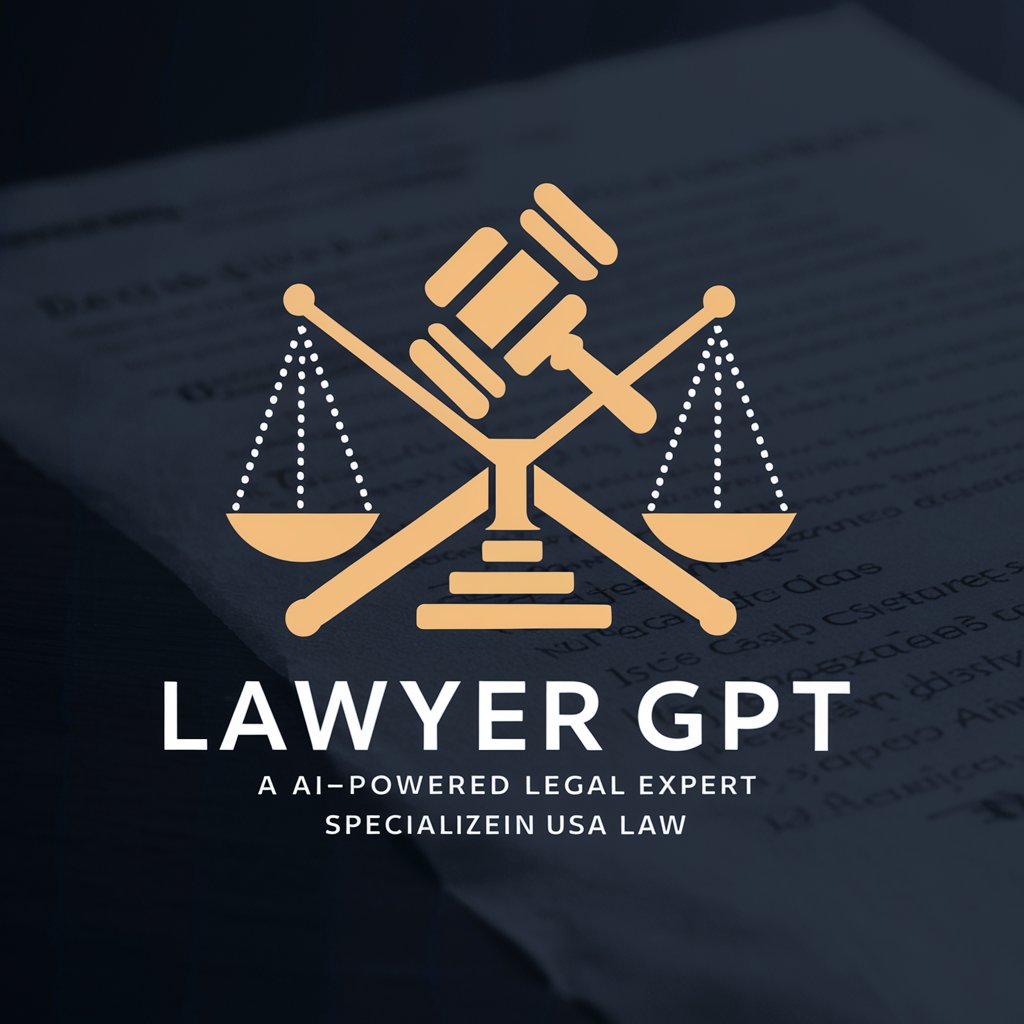
Hello! How can I assist you with your legal questions today?
Empowering legal decisions with AI.
Can you help me understand the legal implications of...
What are the next steps if I want to file a lawsuit regarding...
I need advice on how to handle a legal issue involving...
What resources are available for someone facing legal trouble in...
Get Embed Code
Introduction to Lawyer GPT
Lawyer GPT is designed as a specialized version of the GPT model, tailored to provide legal information, guidance, and support. It acts as a digital assistant for legal inquiries, offering insights based on U.S. law and regulations. By analyzing and understanding legal documents, case law, statutes, and other legal materials, Lawyer GPT is equipped to assist with a wide range of legal questions and scenarios. For example, it can help users understand the nuances of contract law, navigate the complexities of personal injury cases, or provide guidance on intellectual property rights. Its design purpose is to make legal information more accessible and understandable to a broad audience, leveraging the power of AI to demystify legal processes and principles. Powered by ChatGPT-4o。

Main Functions of Lawyer GPT
Legal Information Provision
Example
Explaining the requirements for filing a patent application in the U.S., including necessary documents and timelines.
Scenario
A user contemplating filing a patent for their invention seeks detailed guidance on the process.
Legal Guidance and Support
Example
Offering step-by-step advice on how to respond to a civil summons for a debt collection lawsuit.
Scenario
A user receives a summons and needs to understand their legal options and the implications of different responses.
Resource Identification and Referral
Example
Identifying reputable law firms specializing in employment law for someone facing workplace discrimination.
Scenario
A user experiences discrimination at work and seeks legal representation to address the issue.
Ideal Users of Lawyer GPT Services
General Public
Individuals seeking basic legal information or understanding their rights and obligations in various situations. They benefit from easy access to legal guidance, helping them make informed decisions.
Legal Students and Researchers
Students and academics in the field of law can use Lawyer GPT for research assistance, case law analysis, and studying complex legal theories and applications.
Small Business Owners
Owners who need legal guidance on contracts, intellectual property, employment law, and regulatory compliance but may not have the resources for a full-time legal team.

How to Use Lawyer GPT
1
Visit yeschat.ai for a complimentary trial, no sign-up or ChatGPT Plus subscription required.
2
Identify the legal issue or question you need assistance with and ensure you have all relevant details handy.
3
Input your question into Lawyer GPT, being as specific as possible. Include any state-specific information if applicable.
4
Review the generated advice and follow-up questions. Provide additional information if requested to refine the guidance.
5
Use the provided steps, resources, and recommendations to take action on your legal issue. For complex matters, consider consulting with a licensed attorney.
Try other advanced and practical GPTs
Nutri Guide
Empowering Your Diet with AI

eBPF Expert
Empowering eBPF Innovation with AI

The Investor
Empowering Your Investment Journey with AI

Couples Copilot
Navigate love with AI-powered insight

Code Duo
Empower Your Code with AI

Tattoo designer
Personalize your ink with AI

AI養士
Empowering dietary decisions with AI

In the story
Craft Your Story with AI

CosplayAIs『オーバーロードAI -アインズ-』
Bring Ainz to life with AI-powered interaction.

Chat with Sherlock Holmes
Unravel Mysteries with AI-Powered Deduction

Boletines de Noticias RED (by Javier Abascal)
Streamlining Social Security Compliance with AI

Image2Characters
Unveil the story behind every character.

Lawyer GPT FAQs
What legal issues can Lawyer GPT help with?
Lawyer GPT can assist with a wide range of legal questions, including but not limited to contracts, intellectual property, family law, employment law, and business formation. It's important to provide detailed information for the most accurate guidance.
Is Lawyer GPT a substitute for a lawyer?
No, Lawyer GPT is not a substitute for legal advice from a licensed attorney. It provides general guidance and information to help users understand their legal issues and potential next steps.
Can Lawyer GPT provide state-specific legal advice?
Yes, Lawyer GPT can provide state-specific advice. Users should specify the state their question pertains to for the most accurate and relevant information.
How does Lawyer GPT stay updated on legal changes?
Lawyer GPT's underlying model is periodically updated with new information, including legal changes. However, for the most current legal advice, consulting a licensed attorney is recommended.
Can I use Lawyer GPT for legal document preparation?
Lawyer GPT can provide guidance on legal document preparation, including what information might be required. However, it cannot draft legal documents. For document preparation, consulting a legal professional is advisable.

